
Syrian doctor talks to MEMO about cancer treatment, Turkish support and the absence of vital funding. (Photo: MEMO)
Syrian doctor talks to MEMO about cancer treatment, Turkish support and the absence of vital funding
by Shatha Khalil
“Syrians embraced all people: Palestinians, Iraqis, and Egyptians. But no one is helping us; instead they built us refugee camps. We live in a world now where we feel Muslims no longer sympathise with each other.”
Over three million Syrians have fled their war-torn country in search of a safer life. These refugees include doctors, nurses, engineers and many of the country’s key workers. They leave behind not just their homes and their country but millions who have been internally displaced, or who are trying to survive the turmoil in the country.
One doctor teamed up with friends to set up an organisation to help the sick in a unique project that aims to help refugees in Turkey and in northern Syria who are suffering from a lack of medical care.
Also Read: The Forty-Four-Days of Glory: Azerbaijan’s Struggle for Justice and Peace
Abdul Rahman Al-Zinou has temporarily separated from his family to help Syrians in need. He set up Al-Amal Cancer Centre, which operates from six sites both in Turkey and Syria: Al-Raqa, Mimbij, two branches in Aleppo, Al-Thawra, Izaz, Tramblos, Bab Al-Hawa and Gaziantep, Turkey.
At the centre patients are able to obtain cancer treatment or get referrals to other centres in Turkey where their life-threatening illnesses are tended to and treated. Patients still living in Syria, who are referred to a centre in Turkey, must undertake the treacherous trip across the border to be treated.
The centre in Gaziantep, Turkey, is spread over four floors. The upper floors are lined with wooden floors and a number of beds to house the patients and their companions.
On the ground floor there is a cafeteria where patients can enjoy their meals and spend time away from their rooms. The café is a new addition to the centre and was only opened a few months ago. Before this, the centre relied on takeaways to feed the guests, which was costly and inconvenient, Al-Zinou says.
Also Read: Palestine Solidarity Month: A Collective Movement for Al-Aqsa and Palestine’s Freedom
“There is increasing demanding for space at this centre, we’ve even tried to help homeless refugees who have fled Syria recently,” the doctor says. “Many Syrians are sleeping in parks or on the street and people take advantage of them. As Muslims we couldn’t allow this to happen so we let people sleep here when we have extra space.”
“Patients come here for 10-15 days until we get them permission to have treatment. They are treated for five to seven days and then go back to Syria and spend 20 days there. This is for chemotherapy, radiotherapy and all cancer treatments,” Al-Zinou says.
The centre has a resident doctor and nurse to help patients through their most vulnerable time of treatment. “We have four staff members who stay in the centre at all times, to guard it and also include a nurse and doctor to help the patients during their stay and provide for their needs,” Al-Zinou says.
Patients remain at the centre during the course of their treatment and are returned to their homes in Syria, if that is where they still reside, in the interim period until their next treatment period. This is the only way in which beds are made available for as many of those in need as possible.
Also Read: Hassan al-Turabi: A Controversial Thinker from Sudan
“We follow Islamic principles on accommodating our patients; males alone and females alone. In one room we have a young boy and his aunt as they are from the same family they like to stay together, in that particular family there are three cancer patients,” he says.
The centre also provides permanent places of residence for those unable to return to their homes. “There are people who stay here for the entire duration of their treatment. Many come from Daraa, Homs, Deer Zoor; they cannot return to their homes so they stay for the duration of their treatment,” Al-Zinou explains.
“We offer a full service; we pick people up and drive them from their homes in Syria to the centre. It’s a treacherous journey and we lack the ambulances we need to transport the sick in Syria,” the doctor explains. “We also take people home at the end.”
“The patients we treat aren’t financially able to seek medical attention so they come to us and we do what we can,” Al-Zinou says.
Also Read: Who Exactly is the RSF Group Shaking Sudan?
“They are treated at Turkish health centres and hospitals but these are day clinics and don’t have a system to allow people to stay the night and our patients don’t have the means to stay in hotels so they stay with us.”
“What Turkey has done for the Syrian people, a brother wouldn’t do for his brother; the way they have greeted us and what they offer us in help. Our job is to create a link between Turks and Syrians. If the Turks cannot provide the treatment we try to provide it ourselves. We provide translators to help patients too,” Al-Amal Cancer Centre chief says.
The political climate in Syria has led to its inhabitants having to look elsewhere for treatment not only because many areas are unsafe and even hospitals are coming under attack, Al-Zinou explains, but also because most doctors have already escaped the unrest and moved abroad to save themselves and their families.
“There’s a shortage of doctors in Syria at the moment, especially doctors who specialise in difficult cases: cancer, heart, kidney and vascular. The patients are stuck, either they await death or they seek medical attention out of Syria.”
Also Read: The Two-State Solution (Palestine–Israel) in Historical Perspective
“We are the only organisation providing these services. We don’t have backers. It was all done on personal guarantees, we are friends, we worked in business and we helped one another. United, we obtained funds from our own pockets from those around us and we set up this organisation. There’s no international or local support for us. We get some medicine from the Turkish government and local NGOs, others we have to cover the costs of.”
The cost of treatment, travel expenses and accommodation has recently crippled the organisation’s work, paralysing it and forcing it to close its centres in Syria and threatening its Turkish operation. “We are a registered charity and operate under the guidance of the Turkish authorities. We accept donations but, to date, no one has offered us any. The rent for our building in Gaziantep, Turkey, is now due to the tune of $44,000,” Al-Zinou says.
“We’ve been unable to obtain funding because there are a large number of charities helping Syrian refugees, especially those who deal with relief operations. But in terms of cancer treatment, there are no other charities or organisations which offer what Al-Amal Cancer Centre offers, so people’s interest in it isn’t as high as relief organisations.”
“We pay $15,000 in wages every month at least. I accrued a debt of $50,000 in the first eight months of operations; we have patients in Ankara, Istanbul and Orfa. If a patient cannot be treated in Gaziantep then we send them elsewhere in Turkey. We have a shortage of drivers to take people in and out of Syria. We employ 15 people for this in Gaziantep,” Al-Zinou says about his operation.
Also Read: Enchanted by K-Dramas, Dragged into Slander: Time for Muslims to Rise!
“The costs of running the centre in Turkey are lower than running it in Syria. We are unable to treat every Syrian in need. I sold my car to get funds for the project. Often we have wanted to quit and stop operations but when a patient comes and asks you for help how can you say no? There are children we’ve helped, when I see them after treatment the happiness I feel is greater than all the money in the world.”
Due to the increasing need, the centre now deals not only with cancer patients, but also with any cases which cannot be treated in Syria; these include amputations, cases of blood poisoning, bone marrow transplants and thalassemia.
Al-Zinou explains: “We pay for amputations and replacement limbs. Unfortunately, today, because of the lack of doctors in Syria, many people’s limbs have been amputated unnecessarily. It’s a medical mistake that ruins lives. When you see a child without a limb it breaks you and we do what we can to help.”
However, due to financial constraints they only deal with cases of child amputees.
Also Read: Creating Opportunity and Avoiding Misery; Lesson Learn on Waste Recycling Issue
Al-Zinou arrived in Turkey a little over two years ago but his family remain in the “freed areas of Syria, but now ISIS [the Islamic State] have started fighting there”. He has four sons and one daughter whose ages range between four and 12 years old. He is able to see them every 10 days or so.
“Syrians embraced all people: Palestinians, Iraqis, and Egyptians. But no one is helping us; instead they built us refugee camps. We live in a world now where we feel Muslims no longer sympathise with each other.”
“We ask all Muslims to feel the pain of the people of Syria, bilad alsham are blessed lands according to God. The people of Syria today are being oppressed and killed. There is nothing left for them to suffer from – chemical attacks, limb amputations. No organisation has stood with us, no humanitarian or Islamic organisation. They are all watching to see what will happen to the Syrian people.”
“I will not give up on my country. I only left Syria because I have to help people; I would never leave Syria otherwise.”
Also Read: Between the Treaty of Hudaybiyyah and Ceasefire in Gaza
Please visit Al-Amal Cancer Centre’s facebook page to find out more. (T/P3/R01)
Mi’raj Islamic News Agency (MINA)
Source: https://www.middleeastmonitor.com/resources/interviews/14382-syrian-doctor-talks-to-memo-about-cancer-treatment-turkish-support-and-the-absence-of-vital-funding
scarpe timberland
air jordan retro 11
Air Jordan Pas Cher
timberland uk
air jordan shoes
mulberry sale
prada bags
mens prada trainers
alviero martini outlet
Also Read: Peace Cannot Be Achieved Without a Palestinian State





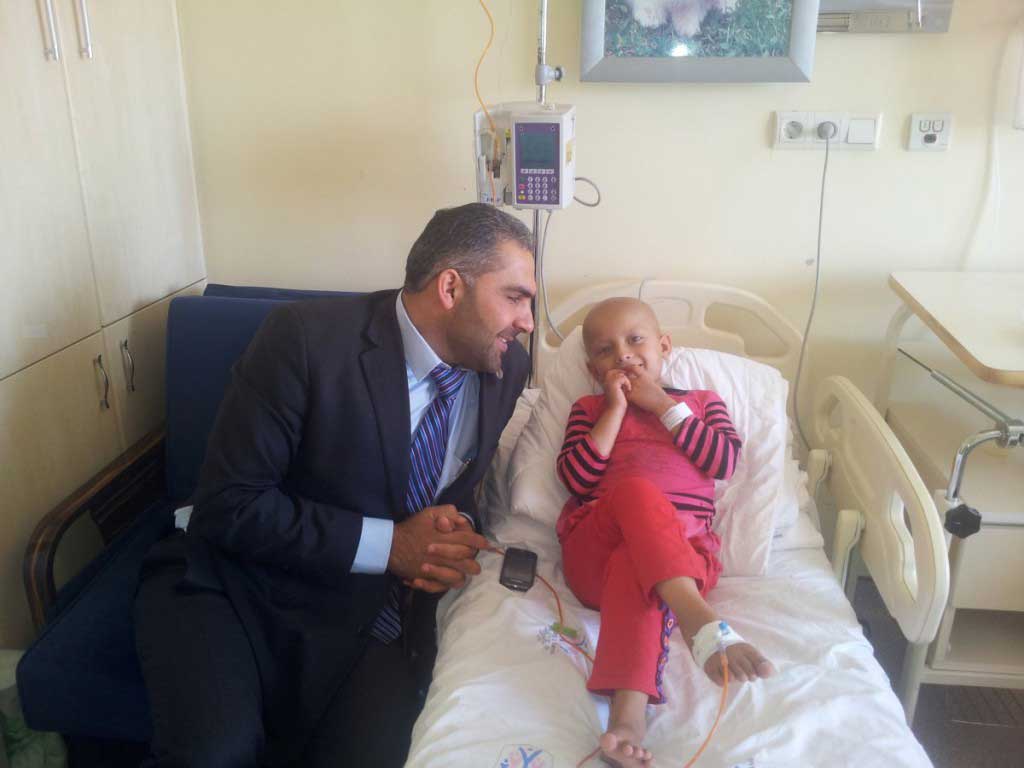


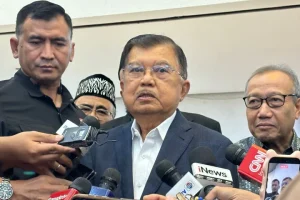
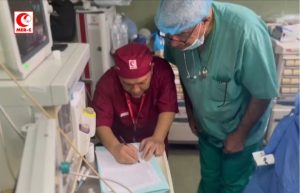
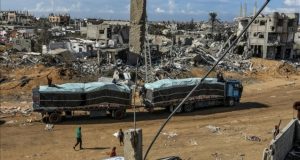
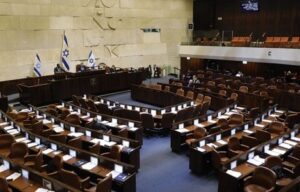
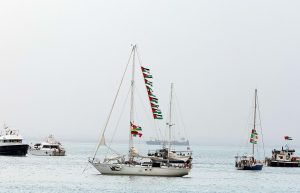
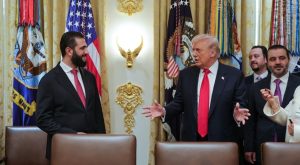
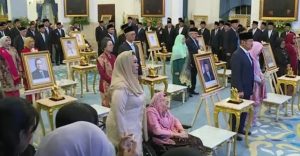
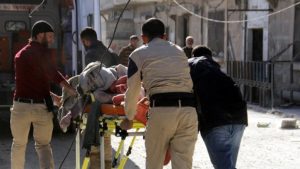
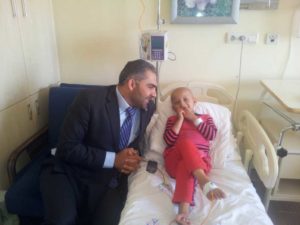





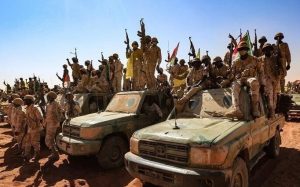
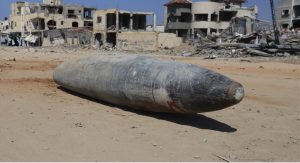
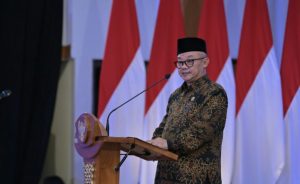
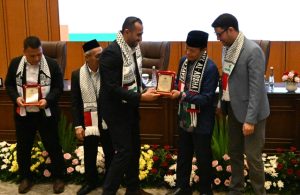
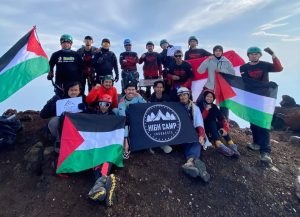
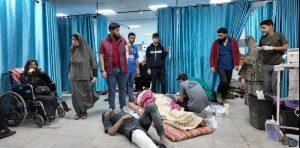




 Mina Indonesia
Mina Indonesia Mina Arabic
Mina Arabic